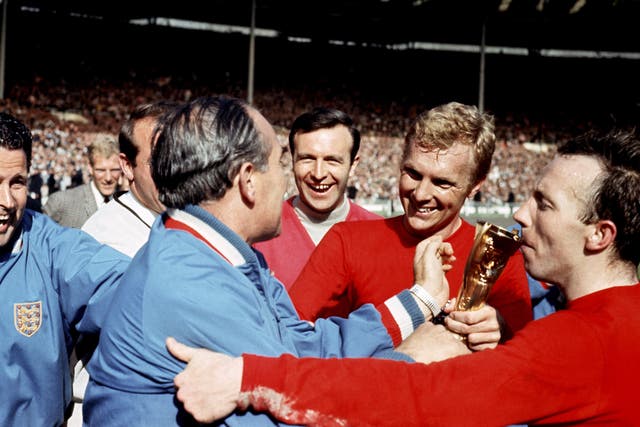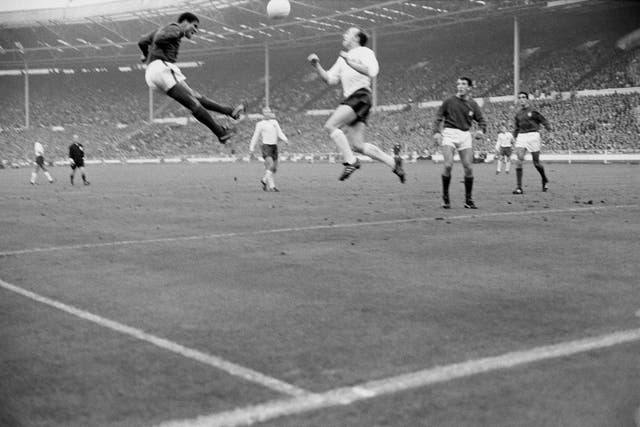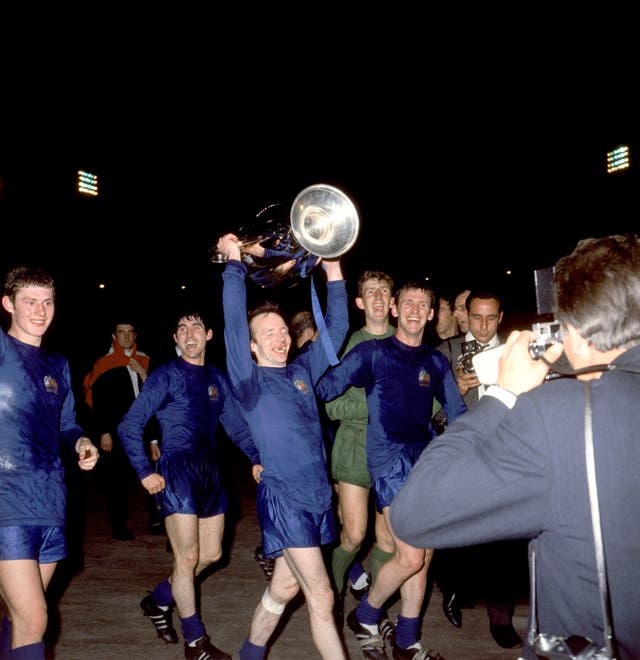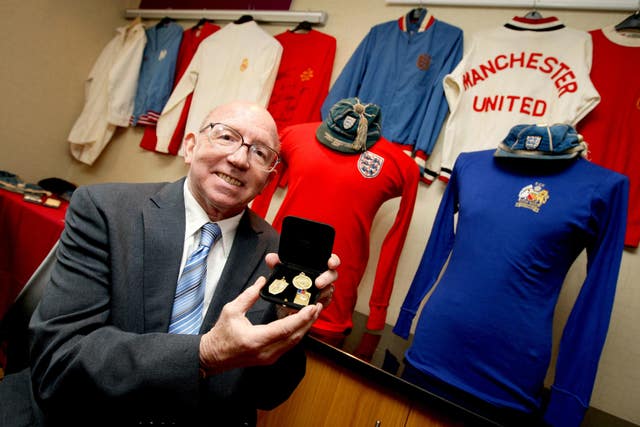Nobby Stiles was, in his own words, the fella with no teeth who danced round Wembley.
The sight of the diminutive midfield terrier doing a jig on the famous turf, Jules Rimet trophy in one hand and false teeth in the other, is one of English football’s most cherished memories.
Stiles, who has died aged 78, played every minute of England’s victorious 1966 World Cup campaign, doing the dirty work so the likes of Sir Geoff Hurst and Sir Bobby Charlton could steal the show.
In the semi-final win over Portugal, Stiles marked the great Eusebio out of the game and he was also a key figure in the final against West Germany, his energy a galvanising force as the contest headed into extra-time.

A naturally shy man, Stiles was transformed on a football pitch and was loved by his team-mates, both with England and Manchester United.
He was born in the working-class north Manchester area of Collyhurst on May 18, 1942 in the cellar of the family home during an air raid.
His father Charlie managed an undertakers’ parlour, while his mother Kitty worked as a machinist. A staunch Catholic, he spent the morning of the World Cup final in church.
A Manchester United supporter, his talent was recognised when he played for England Schoolboys aged 15 and he was given an apprenticeship by the club in 1959.

It could have been considered a risk for United given Stiles stood barely 5ft 6in tall and was severely short-sighted. He wore contact lenses during matches and thick glasses off the pitch that seemed to cover half his face.
But Stiles soon established himself in the side, converting from a full-back into a holding midfielder – an unorthodox position at the time.
The greatest moments of his career came in a cluster during the mid-to-late 1960s.
He only won his first England cap a year before the World Cup finals, but quickly became a firm favourite of Sir Alf Ramsey.

His place appeared in jeopardy after a particularly fierce tackle in a group game against France put playmaker Jacques Simon out of the match.
The referee did not punish Stiles, but the Football Association wanted him dropped for the quarter-final against Argentina.
Ramsey refused, and Stiles only found out after the manager’s death that he had threatened to resign over the issue.
He won his first league title with Sir Matt Busby’s United side in 1965 and another two years later, while 1968 brought European Cup glory with victory over Benfica.
Stiles again found himself facing Eusebio, but by now the hard man’s knees were not what they were and he was unable to shackle the Portuguese star with such efficiency.
Stiles had also lost his place in England’s first-choice side to Alan Mullery of Tottenham and his final tally of 28 caps was the lowest of all the World Cup-winning side.
He left Old Trafford in 1971, spending two-year spells at Middlesbrough and then Preston, where he was player-coach with Charlton as manager.
He followed Charlton in resigning in 1975 over the transfer of defender John Bird to Newcastle, but returned to the club as manager two years later and stayed until he was sacked following relegation in 1981.
Stiles struggled with aspects of management. He hated telling players they had not been selected, or were not going to make it.
He stuck at it, though, moving to Canada to coach the Vancouver Whitecaps and then spending a brief, unhappy spell as manager of West Brom.

Stiles was struggling financially and mentally, experiencing depression that left him feeling suicidal.
Salvation came in the shape of a call from Sir Alex Ferguson in 1989 offering a coaching role with United’s youth team, but he lasted only four years.
After that Stiles kept afloat through after-dinner speaking, but that became increasingly difficult when his health began to fail.
He suffered a heart attack in 2002 and the first signs of dementia emerged shortly afterwards. In 2013 he was diagnosed with prostate cancer.
In 2010, after a mini-stroke, he decided to sell his medals in order to leave something to his family. Manchester United bought them for £200,000 and the medals are now housed in the club’s museum.
Stiles married his wife Kay, the sister of United and Leeds midfielder Johnny Giles, in 1961. He is survived by her and their three sons – former professional footballer John, Peter and Rob.







